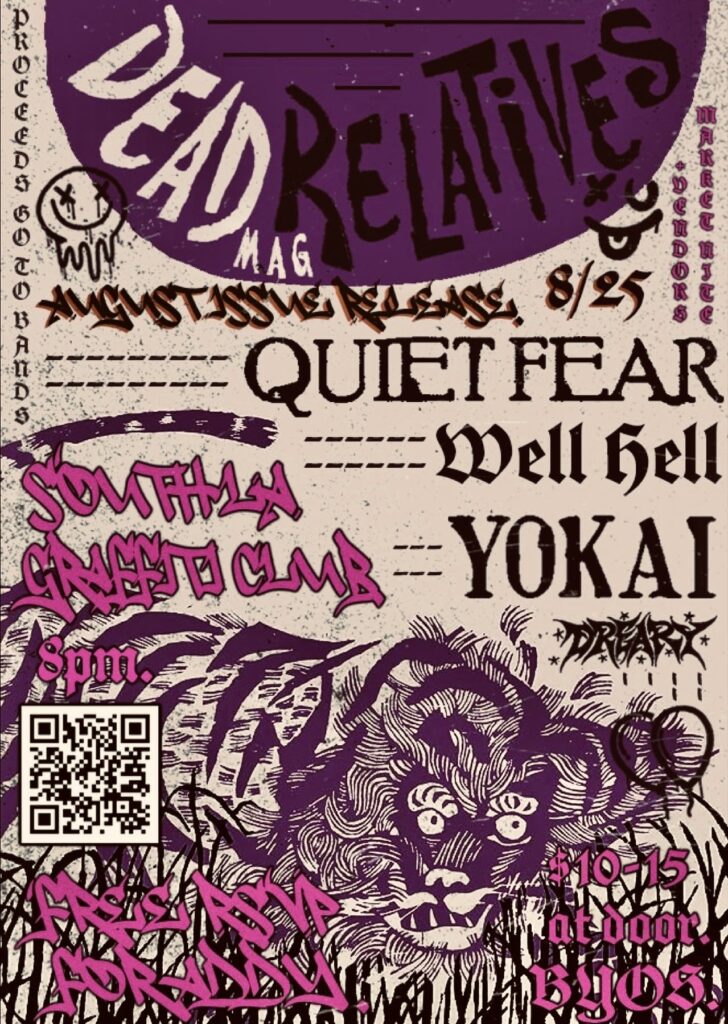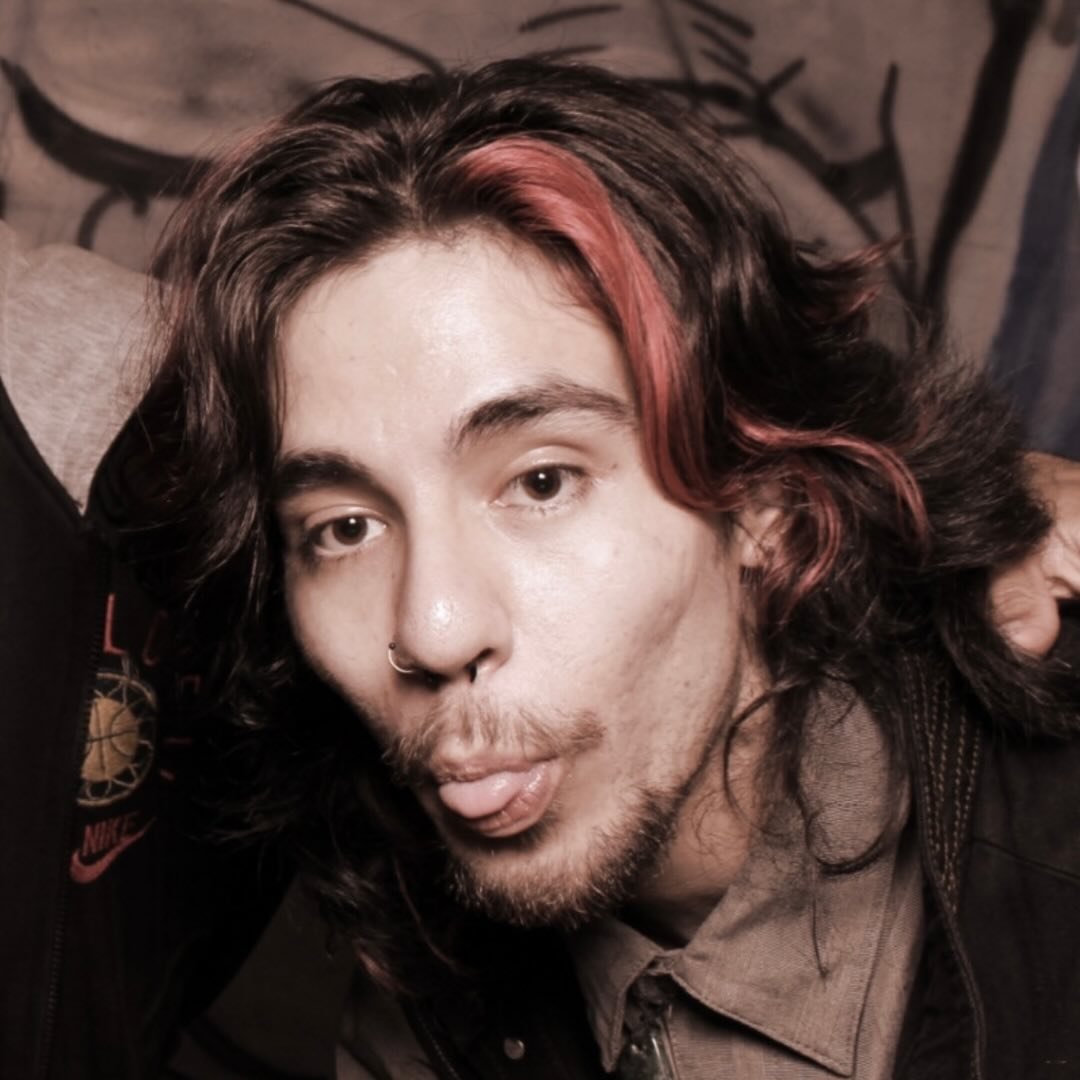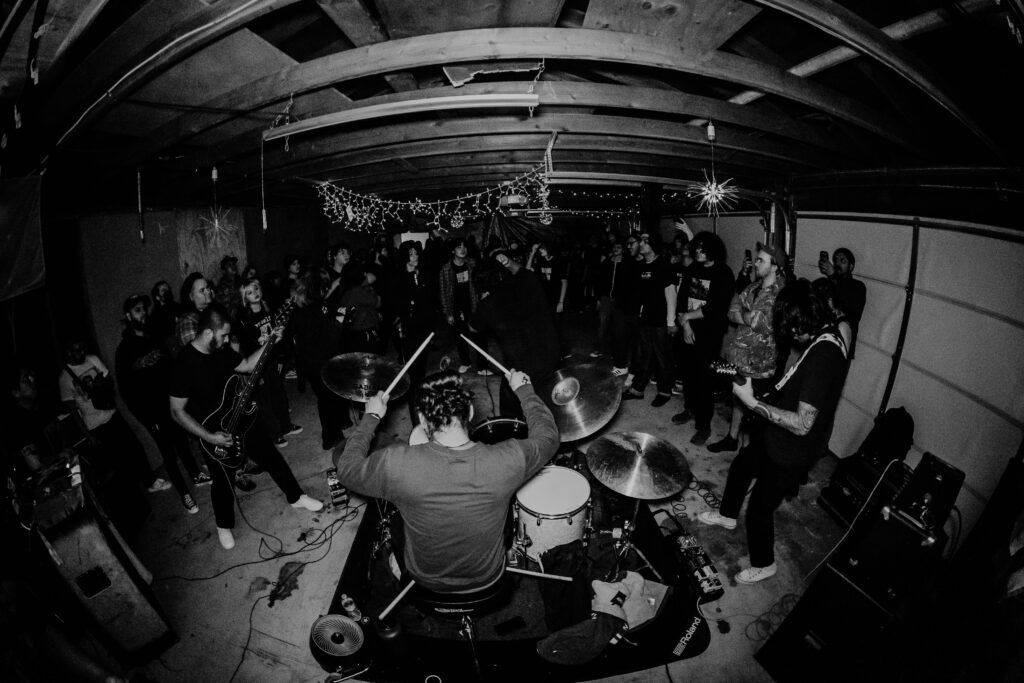
Quiet Fear is: Christopher Tortoledo on guitar, Adrian Saul Ayala on bass, Cristien Fernandez on drums, & Jonathan Patino on vox.
CT: Speaking for Jonathan and myself, we grew up in the East LA, Boyle Heights area. We were heavily influenced by Chicano culture growing up, but when listening to our favorite bands, we noticed we weren’t really represented as people – like man, why do we love these bands so much, and yet there’s none of us in there?
For anyone that’s trying to do what we’re trying to do from our background, you kind of have to work 10 times harder than the next band just to be at the same level. When we started this band we wanted to make the music we loved, but wanted to be ourselves playing it, brown people playing it: what we grew up with, what we know, our parents being immigrants, our struggles – that’s what our music was gonna be about.
Jonathan’s lyrics are about the social problems we have – mental health, police brutality… Not just on us but on people of color in total. & I think that really drives the band to stand out from others. Writing this style of music is cool, but these are topics that none of these other bands are touching because they haven’t gone through it. They don’t look like us.
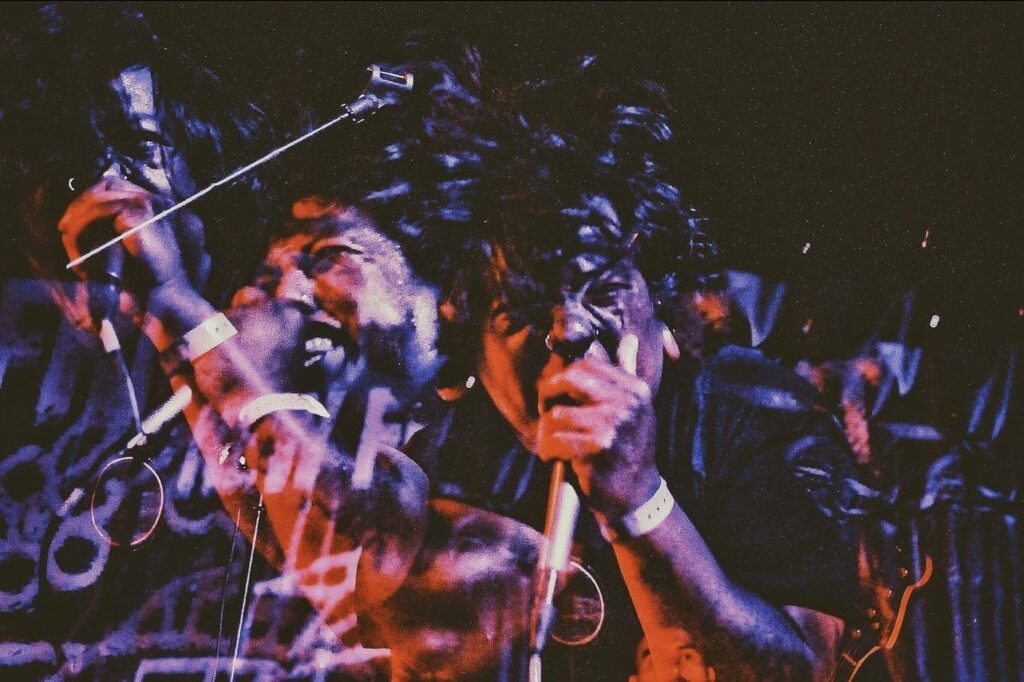
ASA: There’s a lot of emphasis on writing songs in Spanish. It’s mainly for the sake of breaking the mold that is kind of attached to this style of music – aggressive, hardcore, in-your-face – it’s a way of allowing a platform for us to say:
‘Hey, are we allowed in this space?’
When it comes to scramz or hardcore punk, a good majority of it, especially here in SoCal, is predominantly white. Having lyrics in Spanish definitely opens the door for anyone who comes from a similar background to say “Yeah, I can be at that show and I want to be at that show, so I’m gonna do it.” Speaking for myself prior to being in the band, I was a fan, and it was because these guys looked like me, they talked to me about these cool tamale places that we could go and hang out at <haha>, we could talk about our favorite cumbia artists… And even more so not having to fit a mold, having to eliminate my culture to be in this music. Which is why a lot of times when we play live you’ll see me fly my Salvadorian flag. In the culture that Salvadorians are a part of, this style of music is very frowned upon, especially for religious beliefs, or just the social norms that we have amongst each other.
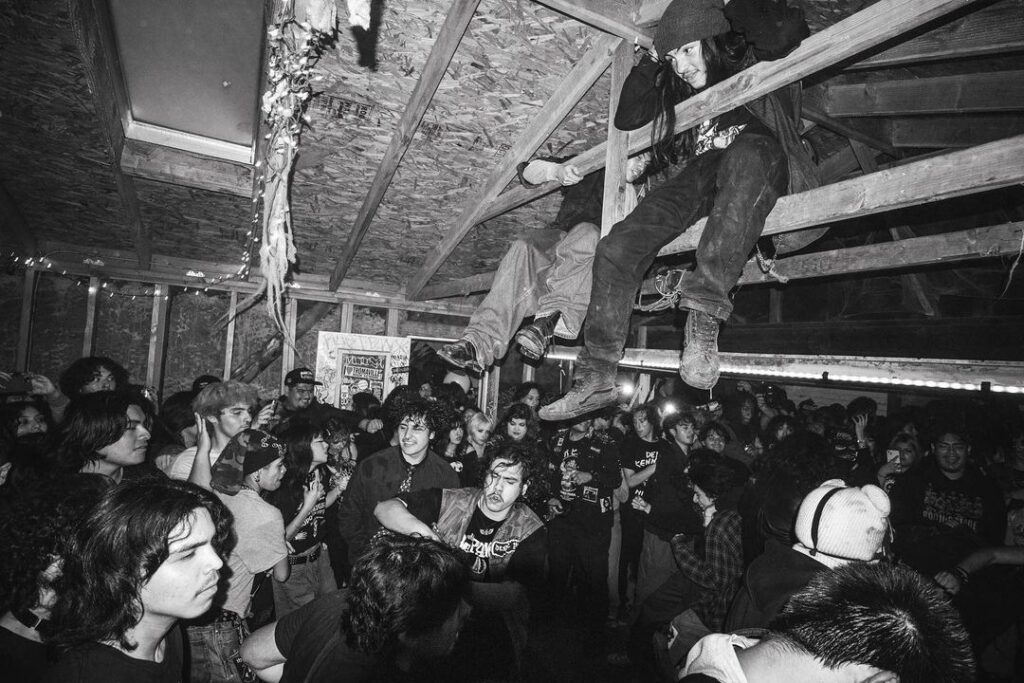
It’s very proper to have the right etiquette in carrying yourself and this kind of music doesn’t apply to that at all. I personally fly that flag for the sake of letting people from that culture understand that if you’re into this, it’s okay. You’re not a black sheep from your family. You might be polar opposites as far as interests go, but you’re no different. I still go to my cousin’s baptisms and have conversations with my family members who are old-school Catholics when I’m not at all, just for the sake of discourse.
CT: I think it serves as a stepping stone too, to somebody who walks in and is ignorant of Salvadorians. So now they’ll see an El Salvador flag on his rig & be like, ‘This motherfucker’s Salvadorian? Playing the bass, making this music?! I would’ve never thought, would’ve never guessed!’ I feel like that pulls in people who are either not into the music or just starting to get into it and look like us; that makes them less afraid to approach more people in the scene or come up to us. But we’re not just trying to say that we’re brown and our music’s just for our community – we’re including everybody when we speak.
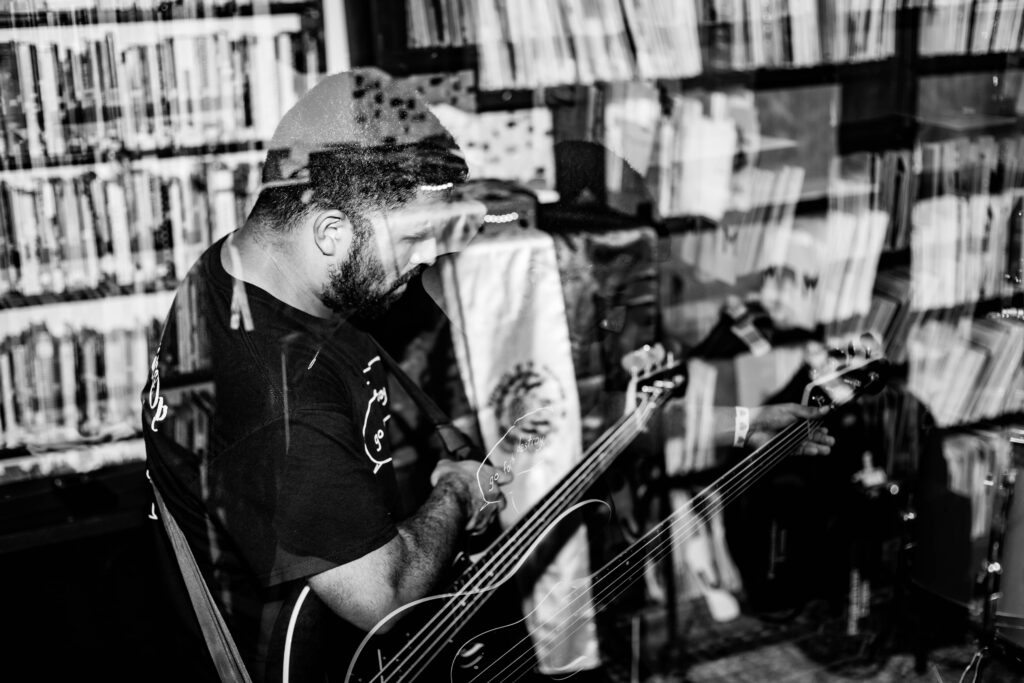
ASA: It’s no secret that Mexicans and Salvadorians have animosity toward one another, and that’s one of the things we try to do with our music too. Just get rid of that completely. Because at the end of the day, most people will never understand the history behind El Salvador being the only nation at first to defect from the Mexican Empire, or even previous to that, the native tribes that my family comes from like Cuscatlan Pipil in San Vicente, being the tribe that defected from the Maya and made their way into Central America, creating the smaller tribes in Guatemala, Nicaragua, El Salvador… Let’s have a connection again versus us fighting their war. Because it’s not ours.
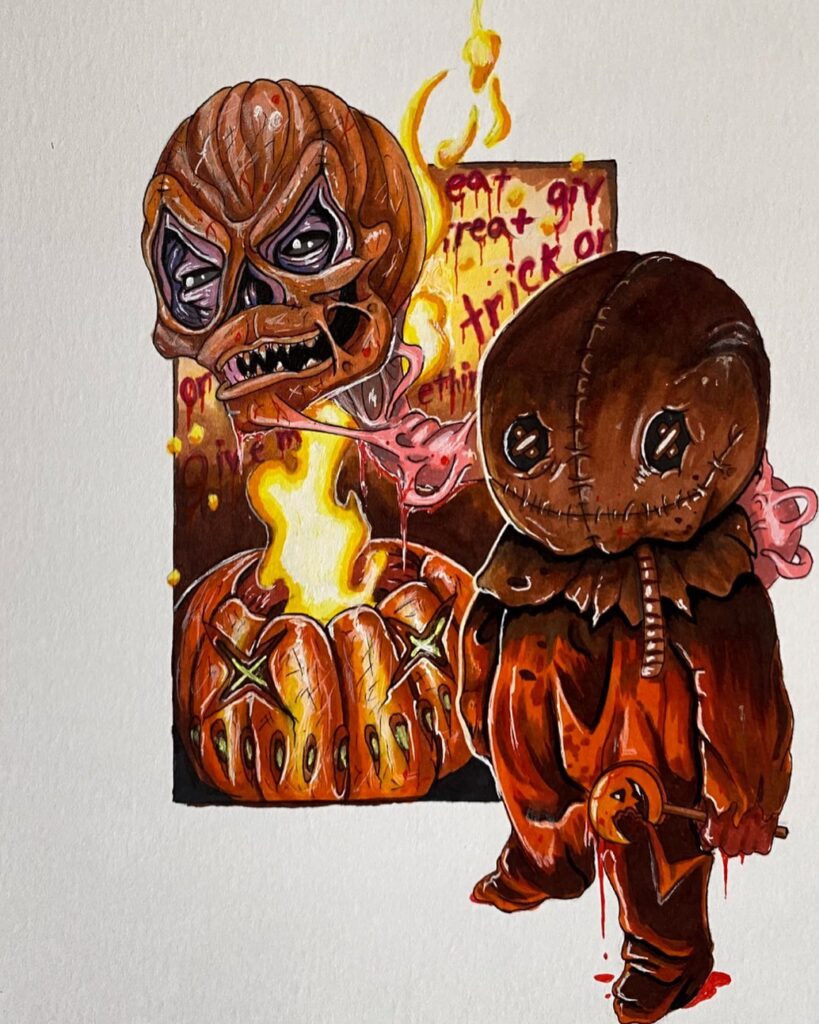
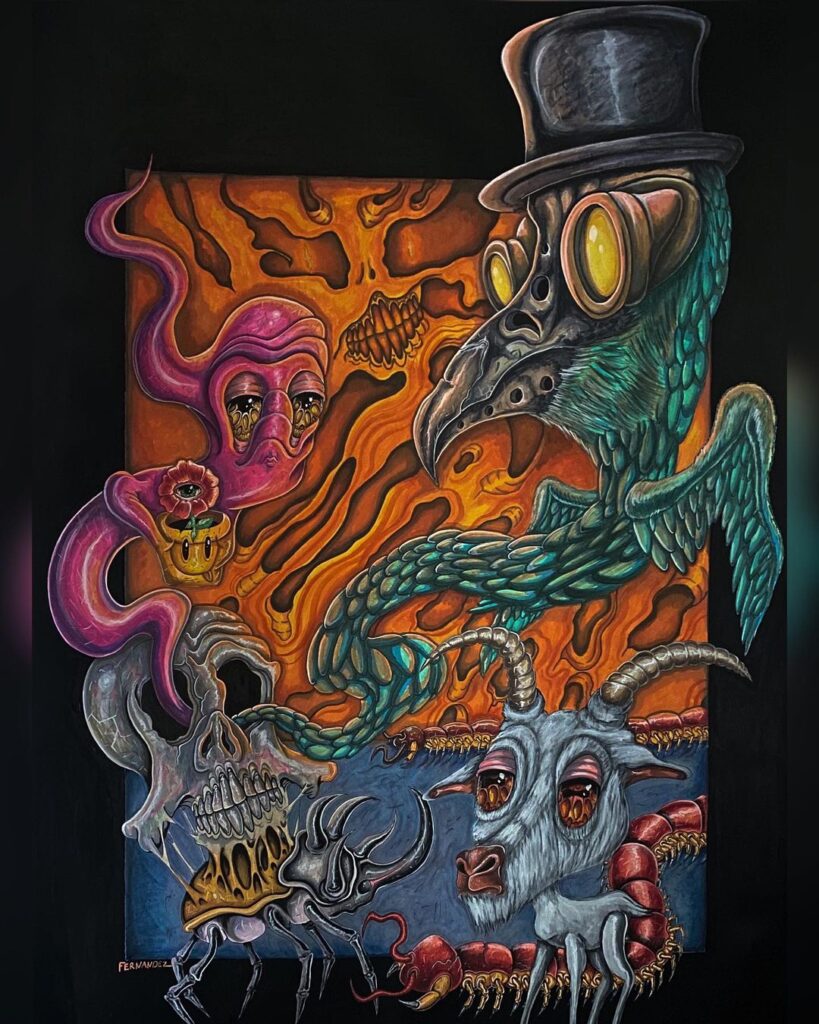
Art by Cristien Fernandez. @crisfernandez.art.
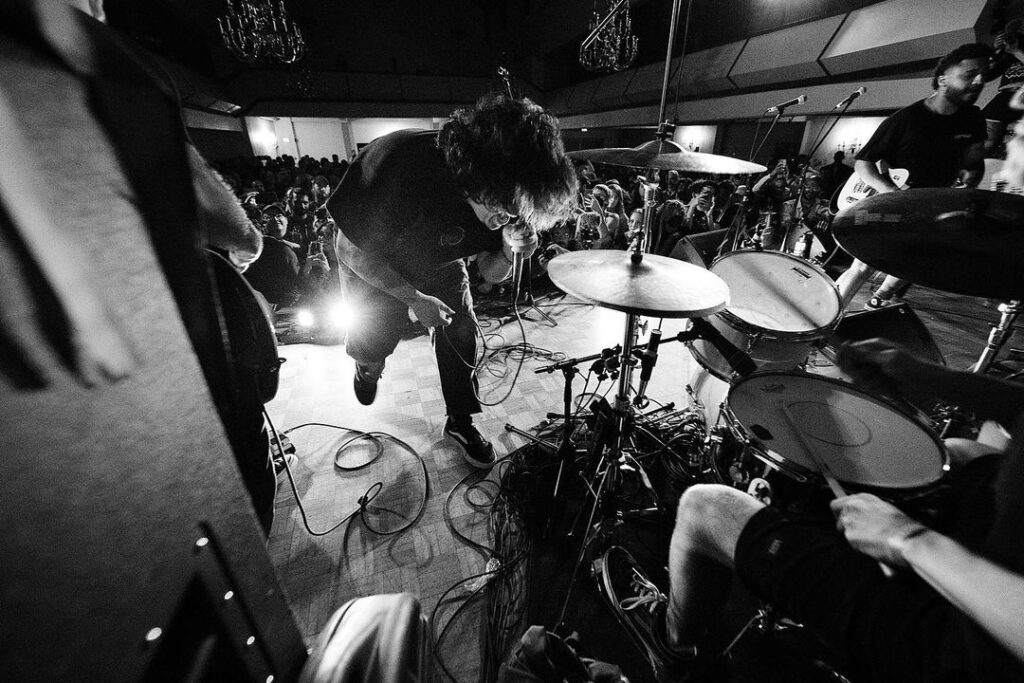
It puts emphasis on this whole thing though, being in a band or being part of the community – that isn’t out of reach based on what culture you’re a part of. That’s what I kind of focus on. And it’s cool because we end up having this conversation of ‘Hey, we’re a bunch of Latinos playing hardcore music; let’s touch on another topic and talk about social issues going on.’ People will get engaged because of the fact that we’re POC, but then they’ll listen to the music and they’ll see our discussions on, for example, transgressions against women. A lot of our new music talks about the trafficking going on from Central America through Texas. Or when we talk about issues that we have with immigration and the thousands of children disappearing from detention facilities.
It allows an overlap with people who aren’t familiar with these issues because of their cultural background or their race to think ‘Oh, I didn’t know that was happening to you guys. Let me be aware of it so that way I can talk about it within my own circles.’ Or ‘Let’s bring our circles together so that way it’s more of a collective mindset against these kinds of issues as opposed to just one side fighting and the other one being blind to it.’
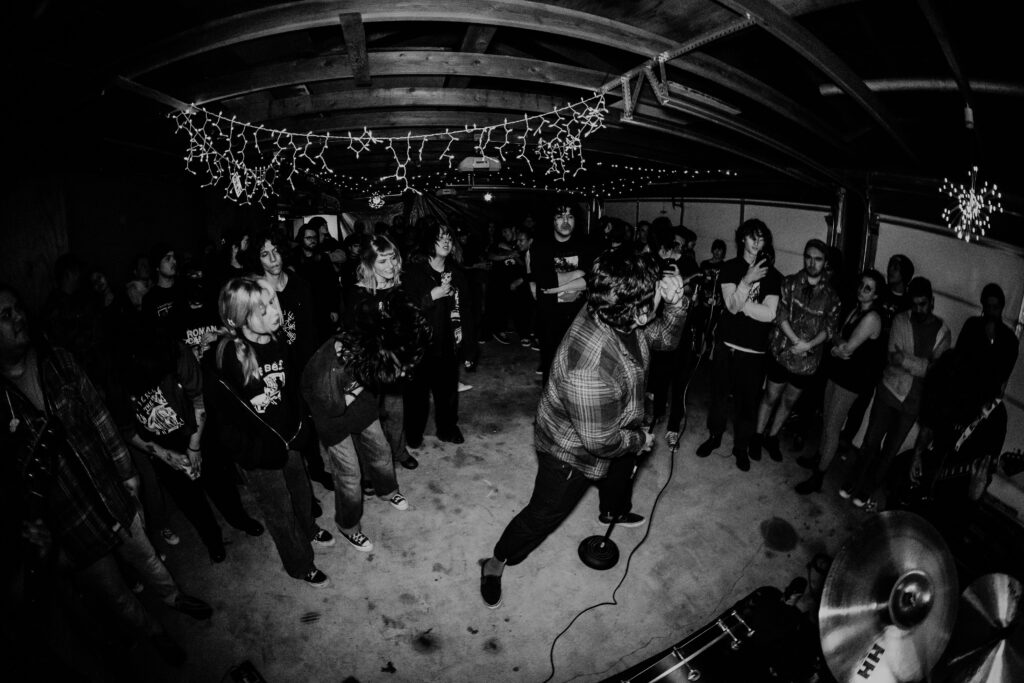
Thinking about what the focus of the music is, it’s those and opening the door to people that were like me that come from a place where this isn’t easily feasible; I hate stages personally, love being on the ground. It makes it more of an ‘I can do that.’ Any kid that’s from like East Los or Latino communities in Texas, New York, the East Coast… Or even in Central America – ‘Hey, I can be in a band too, I can go do a tour even if I just play one show out of the state.’ It’s still cool. Not everybody’s like, fucking Metallica <haha>. You can do this and still make a lifestyle of it, or even just develop friendships or make strong bonds to combat any issues that face any and everybody.
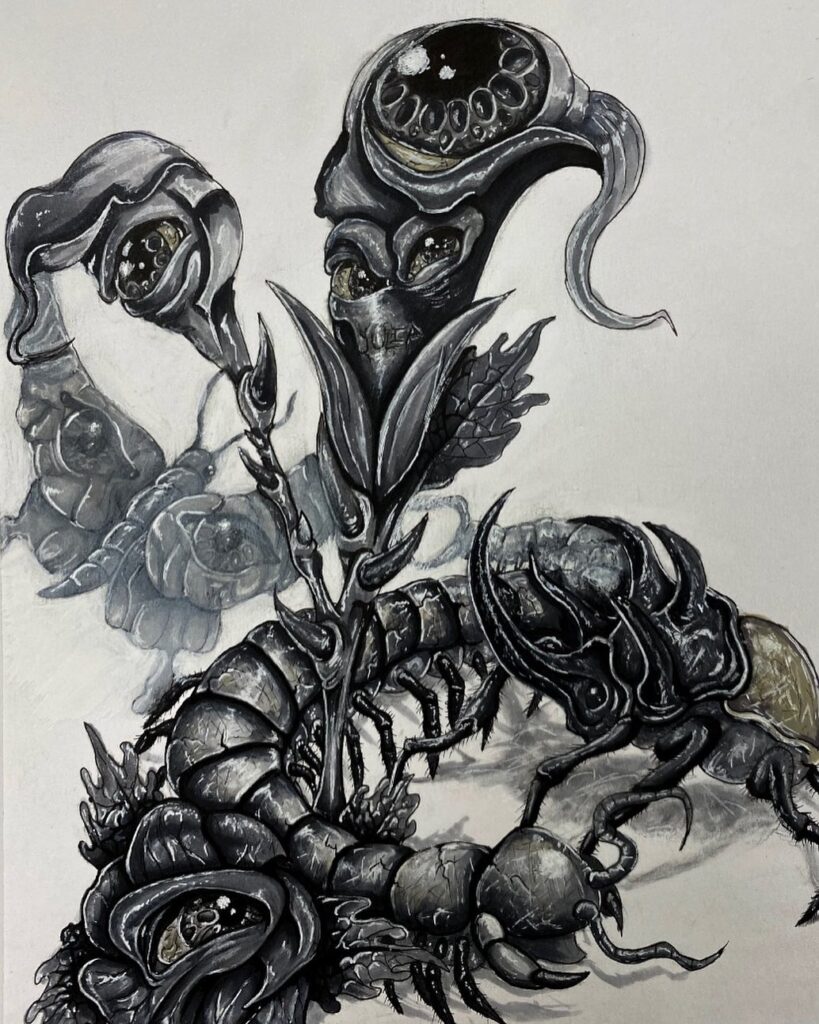
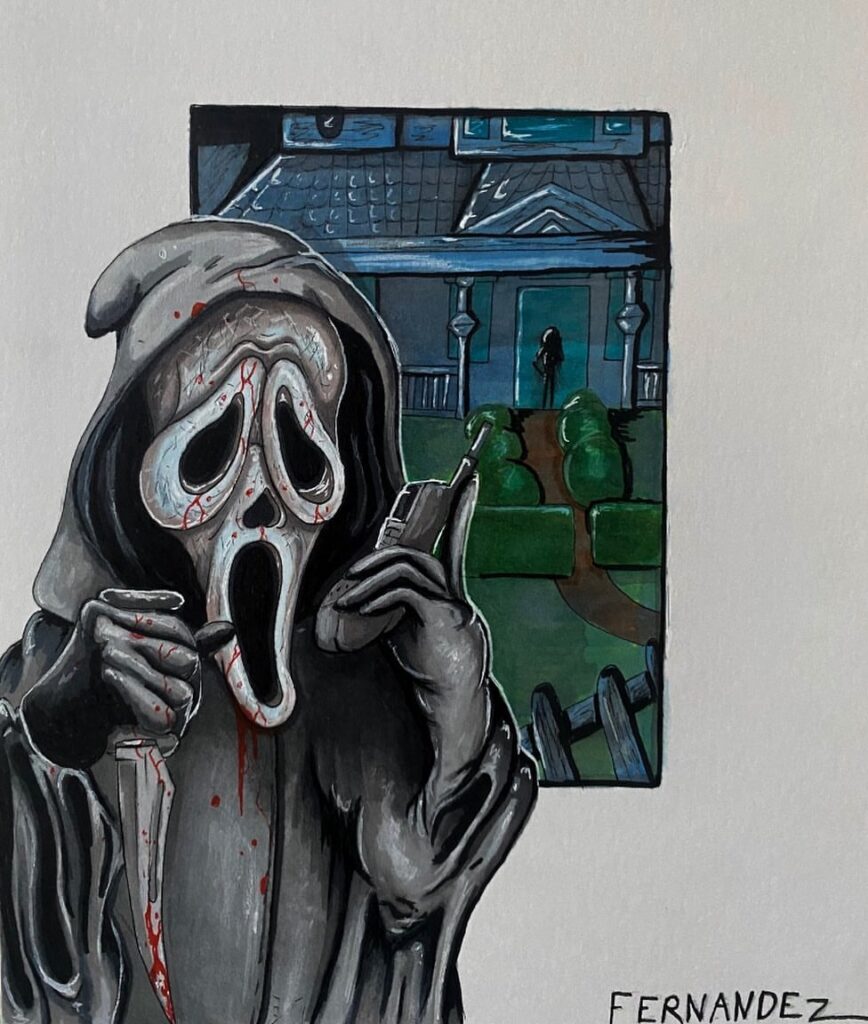
Art by Cristien Fernandez. @crisfernandez.art.
ASA: The same way that anybody in this hardcore community that’s really into Euro bands – like Screamo in France, lot of stuff going on in Italy… The friends that we’ve made from Italy, the ones that live in Peru, or even our friends from Australia – there’s always a language barrier. But I feel the language barrier allows for people to come up like, ‘Hey man, what are you saying? What does it mean?’ And that causes conversation about our beliefs, which leads to, ‘How did you get into that? Why are you so behind that? Why do you have a passion for that?’ You bridge the gap between English speakers or French speakers or Spanish speakers.
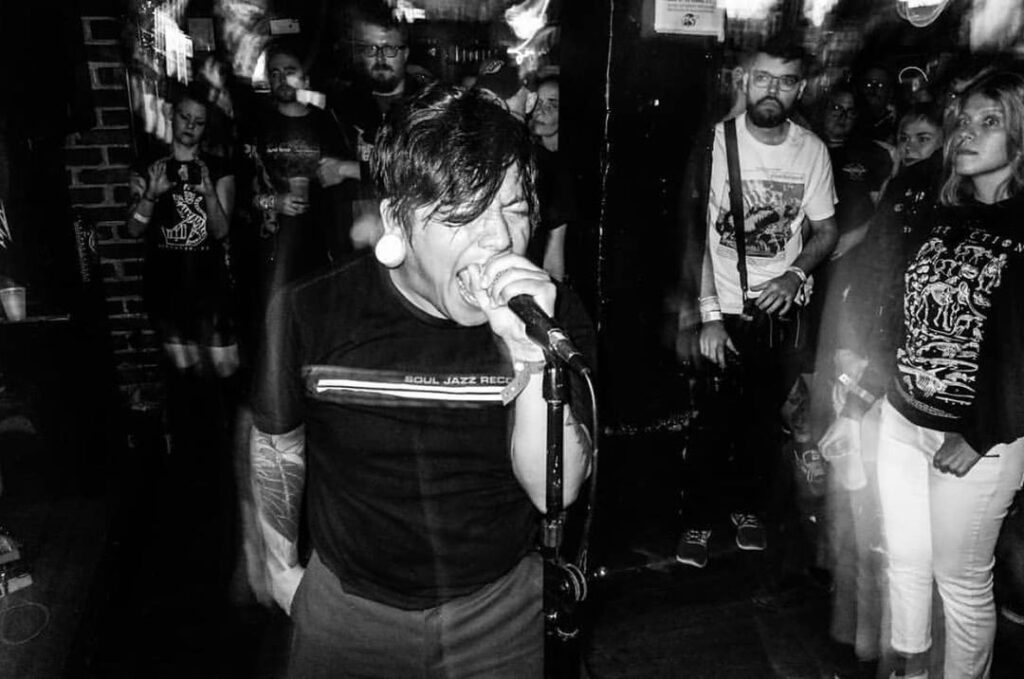
Like Eterna Soledad on the record; people ask John what it’s about, and he’ll talk about mental health issues or stuff going on with his family or some introspection that he’s doing. And that leads to people opening up to him. He’ll meet people that are in the same profession as him doing construction and you can see that it’s a universal thing, you know? Especially being working-class and coming from working-class families, it shows you that our cultures aren’t different. Maybe you make lyrics in English & we do them in Spanish, but we’re talking about the same thing.
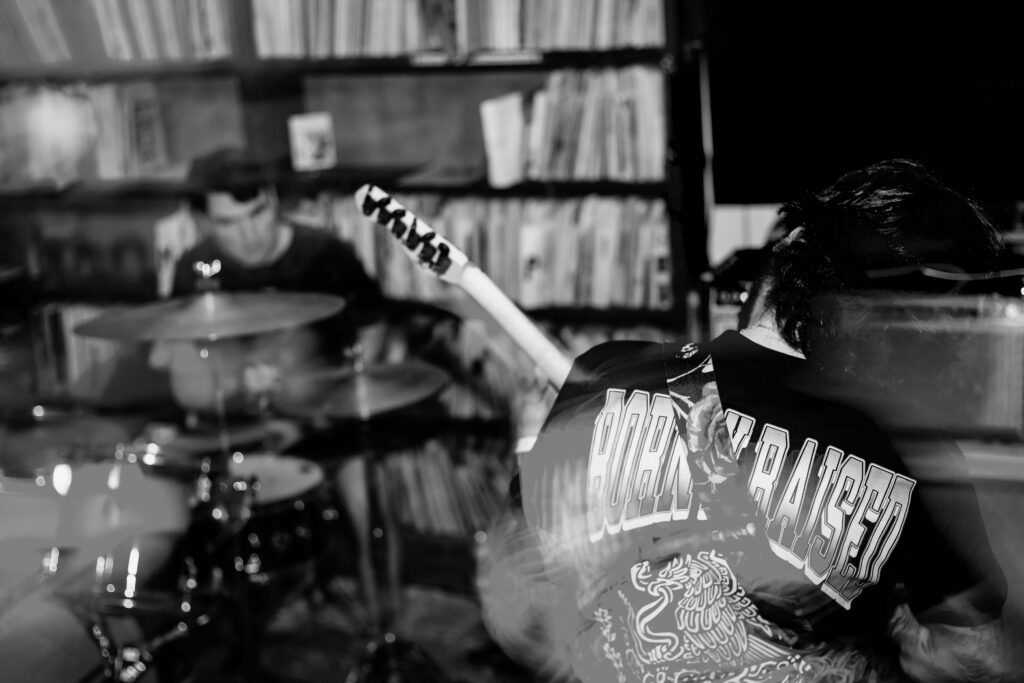
CF: I’ve noticed that a lot of people don’t understand, but the ones that are intrigued: you know they’re intrigued. It’s almost like you’re weeding out the people quick to dismiss it. I was a fan before I was in this band, and I just remember thinking: I don’t know what the fuck is happening right now, but I love this shit, dude. There’s something going on here that’s special.
See Quiet Fear this Friday at a South LA Graffiti Club. All proceeds go to bands. RSVP for free here.
